I knew that in Bangladesh weddings were traditionally arranged by male relatives of both families… I was in a village, in the countryside of Bangladesh, as a guest of a Bengali friend of mine. One morning he invites me to a meeting between his family and another family in order to arrange his cousin’s wedding. This is the story of that day: a long day during which the bride sees her future husband (a lifelong partner) for the first time in her life on my camera’s display. A day of union that they live completely separated: they spend all the time during the wedding ceremonies only with their same sex relatives. At the end of the day the bride must leave her family (and the place were she spent all her life until then) in order to join her new house and family: people and places that she has never seen before in her life. That’s the way it went: that’s the day she got married in Bangladesh.
This the story of Ali (his Italian name): one of the thousand Bengali immigrant workers in Italy. As all of them he came in Italy, looking for a job, after an expensive, long and tiring jourey through Asia and Europe. As he was an illegal immigrant he did illegal works for years until he found a honest manager that who gave him a regular contract. Because of that he got married whit his cousin in Bangladesh two years ago. This is the story of Sharafat (his Bengali name) who pose for a picture during a mountain walks in Italy: a souvenir for his wife who lives in Bangladesh. This is the story of Milon (his family name) that every month sands money from Italy to his family in Bangladesh. This is the story of a son, a brother and an husband that every year come back to his country, hometonw and village to stay with his family.
Svetlana is a russian woman who came to Italy nine years ago to work and give her dear ones a better future. It has been a difficult decision: she had to leave her family and a good job at the ministry, yet her income wasn’t enough. She was born in Kazakistan and at 18 moved to Adighezia Republic, her father’s land. I met Svetlana, in 2009 in Ferrara, the italian town she lives in and considers home. She works as a caregiver and she is the president of “Nadiya caregivers association”. In June 2011 I went with her to Majkop, her former home, I met family and friends, I went to the village where her father lived and the places she’d been working in, and where everybody misses and loves her. I don’t think she will ever go back, she loves Italy, she loves cycling around Ferrara streets and now that her son Vitali joined her there, she has a reason more to stay.
Prato is the city where I was born and I grew up until I finally ran away, when I was nineteen. It was worldwide known for its textile industry, for its incredible and unique economic growth after the end of the war, for its wealhtiness that especially during the eighties lured thousands of people to migrate there. Owners and workers were united for the same goal, a global wellness. Families were able to buy their own houses and pay for their childrens' education. Prato is now famous as the symbol of global crisis, so famous that when the chief of CGIL (the biggest and most important workers'alliance in Italy) was elected, he decided to give his first speech in one of the factories of Prato (one of the few that are still on duty, although with an half-regime capacity). I decided to go back to document this all, but it was not entirely the truth: I probably felt guilty for leaving and shortening more each visit, due to the sadness you can breathe in the air. It was a chance to document what remains of the city, its factories, its machines, its landscape so tipically spotted with chimneys, and the chance to meet people I'd never met before, and think the city in a different way.
LU, the Ukrainian nickname for Ludmila, is a work in progress about one of those women that come to Italy from Eastern Europe to grant their family a better life. They usually work as caretakers for old people but Ludmila got ill and was hospitalised for a long period. We met in Italy but I followed her back in Ukraine for Christmas: it was three years she didnít go home. Her world is firm and warm. Full of signs from the past but also of the welfare sheís working to afford. She managed to have a beautiful marriage for her daughter and sheís very proud of it. She's still the head of the family, loved and well respected for what sheís doing for them. But you can feel in the air the fear for her leaving again. Her dream is completing a building they started by their house to open a florist shop. In Italy people know nothing about what these courageous women left behind: they are just seen as substitutes for what public welfare isnít able to guarantee, and often they are underpaid, irregular workers. There are many political proposals to get them out from this hypocrisy, but nothing will give them back the things they donít see at home: children growing, young girls falling in love, the landscape changing through the seasons. I'm going back in September, cause they say I must see the incredible Ukrainian flowers. LU is a book and can be seen and purchased in Blurb http://www.blurb.com/my/book/detail/1458407
In Italy the scoutism is very popular and famous. By tradition there are always been two separates Scout Associations: one Catholic and the other Secular. Lately, in the north of Italy, a new Association is little by little building up: the Muslim Scout Association. It's mostly made of second generation immigrants. They look similar by the uniforms (of course the women wear the veil) and they have similar friendly foundations,. The respect for nature is similar to the traditional scouting: they go camping like to walk paths in the woods, light camp fires but their God is different. In other countries, as in England, there is a big Scout Association grouping. Different religious groups gather in a single community whatever their religion may be. Often in Italy young Muslims live their cultural differences with the Italians of same age as something very difficult to deal with. And keeping these groups apart doesn't help integration. Sometimes Muslims would much better off developping new ways for young people to get together instead of feeling discriminated by society. This story is about young Italian Muslim Scouts and their journey through the Italian's wood looking for a warm place.
Italy is a country rich of linguistic minorities, some are able to outlive, others are so small that they will inevitably disappear. I would like to introduce the Ladin community, a minority of a special region, Trentino Alto Adige. I met a community counting not more than 30.000 people living in five valleys in the heart of the Dolomites: their identity is characterized by a neo-Latin language that has been handed on for more than two-thousand years. I focused my work on Val Badia where the highest concentration of Ladins is located. It took me a year (2007-2008) to ultimate my research, I met a lot of people and I came in touch with secular traditions felt by all the population. The Ladins are ecologists ante litteram due to their great respect for the nature surrounding them and the alpine agricultural activities. The economic prosperity, the presence of three languages spoken in this area (Ladino, German and Italian) and the intellectual vitality are all elements that make of it an open minded and hospitable community.
He headed out onto the street in 1993, when he started whit tags and trains. Pretty soon he started documenting his creations, and those of his crew, to keep a trace of them before they were wiped out. A love affair grew with his camera, and the pictures became more than just a record of their art. The images became a description of a whole world: the preparations the night-scape, the asrtist's gestures and their environment. Tales of invisible. They call us vandals is a work in progress about the graffiti writers started in 2003.
Those who said “yes” seem to have become part of that dimension where a parent is worn out or some kind of magician and among those who can be defined as “the lost ones”. Also because it is well known that reaching one’s own economic, working and social gratifications seems to be less compatible with the birth of a child. This is definitely linked to the common idea. But in order to move away from this common sense I entered the everyday life of some Italian families. I have chosen five situations in five different locations: Milan, Acqui Terme, ( in the Province of Alessandria), Montemurlo ( in the Province of Prato), Rome and Scicli (in the Province of Ragusa): Stefano and Myriam left the city, gave up travelling or planning wonderful holidays in order to live in Pasciotto a beautiful seaside resort within the nature. Far away from their grandparents and friends they can afford the help of somebody for the management of their big family. Stefano has been able to follow most of his job by working at home and spending more time with his family; Daniela and Alessio have planned their days with their little daughter Margherita so that Daniela has not been obliged to give up her doctorate of research at University; Panagiotis is still carrying out his activity as a full time artist whereas Federica works the shifts; therefore it is Panagiotis who has the chance to spend more time with Elektra and take care of the house; Patty, an English teacher, decided to teach via web cam after Elia’ s birth. Their holidays have not changed at all, they still all go off camping; Eleonora has been able to get a part time job. All the couples mentioned did not have to give up their personal passions: taking care of your children without mortifying yourselves is possible.


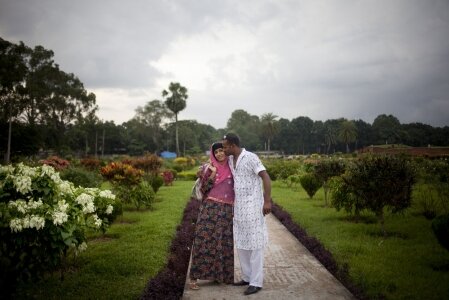
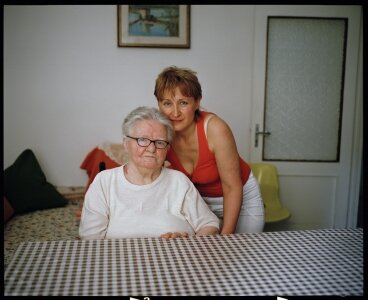

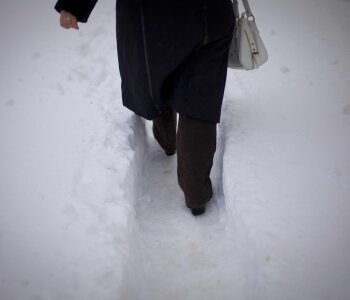
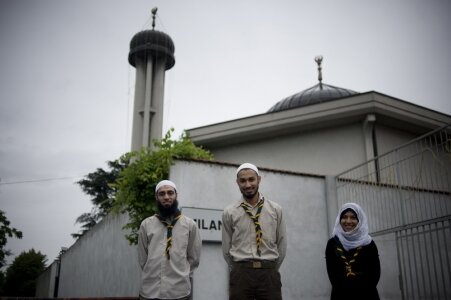
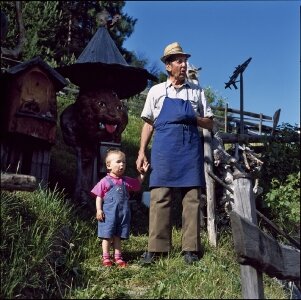




 Webeing.net
Webeing.net